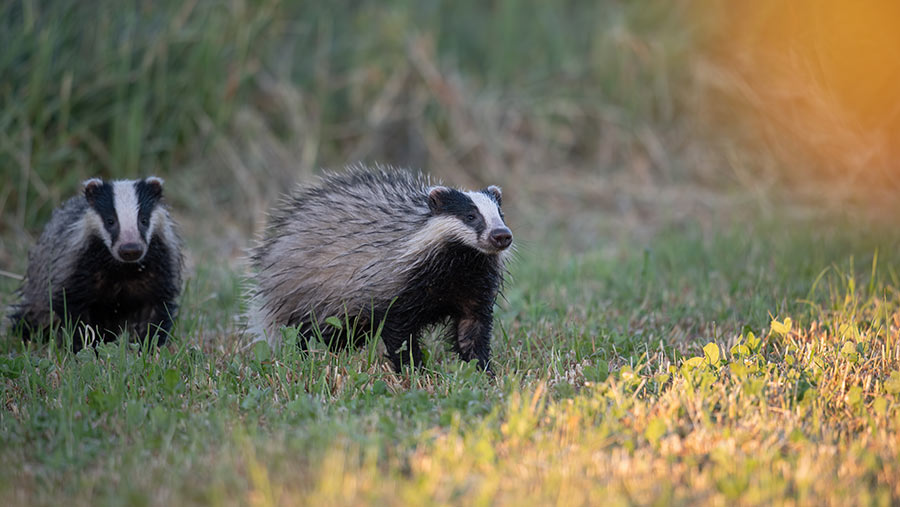Defra urged to ‘come clean’ on badger culling data
 © Adobe Stock
© Adobe Stock Scientists behind a recent study that demonstrated badger culling in England has been unsuccessful in reducing TB rates in cattle are urging Defra to come clean with its own data and arguments.
Ecologist Tom Langton, co-author of the study [PDF], which analysed publicly available government data on the badger cull and TB herd incidence, has written to Defra secretary George Eustice requesting that he and his department release their own data and explanation to support their contentions.
It comes as Defra chief veterinary officer Christine Middlemiss and chief scientific adviser Gideon Henderson sent a written apology to Mr Langton for using incorrect calculations in their rebuttal letter, published alongside the peer-reviewed study.
See also: 5 ways to improve TB control in the UK
In a statement, Defra said it discovered a “minor discrepancy” in its calculations that were used to reject the conclusions of Mr Langton’s study. But it insisted it stood by its original claims that the vets’ data had been incorrectly grouped.
A Defra spokesperson said: “This paper was produced to fit a clear campaign. We discovered a minor discrepancy in our calculations, which has now been corrected.
“This does not change our position that data was manipulated in a way that makes it impossible to see the actual effects of badger culling on reducing TB rates.”
Mr Langton’s study, published on 19 March in the Veterinary Record journal, found that bovine TB was declining across the high risk area (HRA) of England before badger culling was rolled out more widely by government in 2016.
The study concluded that licensed government culls carried out in the HRA since 2013 have been “ineffective at reducing TB in cattle herds”.
But scientists from the government’s Animal and Plant Health Agency who reviewed the Langton report, claimed that it was based on “significant methodological flaws” and they rejected the study.
Written apology
Mr Langton told Farmers Weekly: “Defra has sent us a new TB herd incidence graph with confidence intervals suggesting no difference between culled and unculled areas in each year, but without the supporting data and methodology used to extract the data.
“I have asked Defra repeatedly since 5 May to send clarification on their work and how they generated the new graph, but these pleas have been ignored.
“We have now written to the minister [George Eustice] asking for a full retraction and public apology of equal scale to their original, unfounded accusations.
“This confusion needs sorting out. It leaves all stakeholders in the dark on TB – one of the most debated cattle health issues of our time.
“We believe that all badger culling should be suspended until this matter is sorted out and the policy reviewed.”
